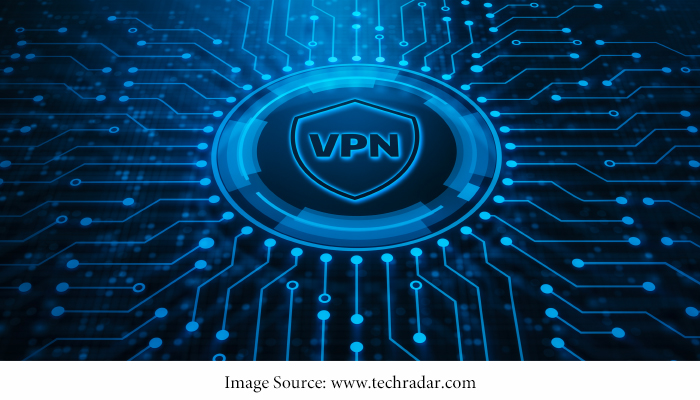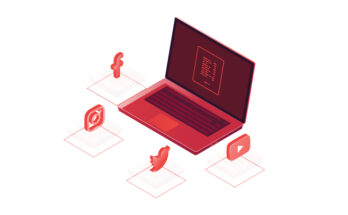A VPN sends your network connection to another computer (a server), encrypting your data. It provides a variety of advantages to Internet users.
For example, many streaming services geo-restrict their content, making it impossible to watch when traveling or living abroad. And using a VPN can help you bypass Internet censorship.
Access to Blocked Content
By encrypting your data, a VPN shields it from snooping parties like ISPs and hackers. One of the advantages of VPNs is that it conceals your IP address and location by routing your internet connection through a server on its network before connecting you to the internet through that server.
You can use it to get around geographic restrictions on TikTok and other social media platforms and stream shows in places that aren’t available. VPNs are also essential for accessing websites on public Wi-Fi without risking your privacy.
And if you connect to a VPN before you check your bank account balance or answer emails on public Wi-Fi, you’ll have an extra layer of protection against snooping by someone who may have stolen your password. But VPNs aren’t a solution to invasive e-commerce trackers. Even with a VPN, companies can correlate your browsing history to your real-world identity. In addition, they can collect information about you from your device — including your operating system, identifiers, and more – to create a profile that a VPN does not obscure.
Increased Privacy
Many governments impose heavy online censorship, blocking access to websites, apps, and streaming libraries. Premium VPNs can even help evade content blockers by changing your online location.
When you connect to a VPN, your data travels through a remote server, which encrypts it. It hides your identity from snoopers. Google Maps, for example, can’t correlate your search history with your IP address. But you should know that not all VPNs are created equal.
Some internet service providers limit their customers’ bandwidth or speed after consuming a certain amount of data. VPNs can avoid throttling by encrypting your data so that your ISP cannot see what you’re doing on the web.
Better Security
A VPN protects your data from hackers, cybercriminals, and malicious entities. Additionally, it will shield you from Man in the Middle (MITM) and DDOS attacks. A VPN encrypts your data and masks your IP address, browsing history, device identifiers, operating system information, and other data.
Many online services and websites use your location to limit the content you can access, as well as to charge you more based on your location and purchasing habits. You may get around these restrictions and utilize all of Hulu, Spotify, and other streaming providers’ services and goods by using a VPN.
If your Internet Service Provider (ISP) notices you are streaming or downloading many videos, a VPN can assist you in evading data throttling by your ISP. If a VPN encrypts your internet activities, your ISP cannot view it. The only drawback of using a VPN is that your internet speed will be slower because your data must pass via the server to be safely encrypted.
Access to Public Wi-Fi
A VPN creates a private internet connection that routes your internet activity through a secure server. It helps to hide your actual IP address and activity so that anyone spying on you via a public network won’t be able to see what you’re doing online. This feature of a VPN is great for those who frequently use public Wi-Fi, like commuters or travelers.
VPNs are also helpful for those living in countries with heavy censorship and journalists who need to protect their sources or access sensitive data while working remotely. VPNs are often the only way people in restrictive regimes can access their favorite apps and websites.
A VPN can protect your privacy by masking your location and search history from online services such as Google and Facebook. However, these services can still correlate your searches with your account information to build a profile about you. It is because a VPN only obscures your identity in transit, not as it is being sent to and received from your device.
Access to Anonymous Websites
A VPN hides your digital footprint, making connecting your device to a malicious site impossible without the proper credentials. It gives employees the freedom to work from anywhere without risking their company’s network security. VPNs offer a low-cost security solution compared to hardware firewalls or intrusion protection software, which requires regular maintenance and licensing fees.
VPNs hide your internet traffic, scrambling it so that your data is unreadable to anyone trying to steal information. It is especially beneficial for remote workers, who may be using public Wi-Fi networks and could risk having their devices compromised by hackers.
VPNs can also help get around geographical restrictions on websites and streaming services, like Netflix and TikTok, that rely on IP addresses to determine your location. By connecting to a VPN server in a different country, you can make it appear like you’re browsing from that location. It can also help you avoid throttling by your ISP when approaching your data limit. The best VPNs will offer multiple servers in different countries to give users the most flexibility.




